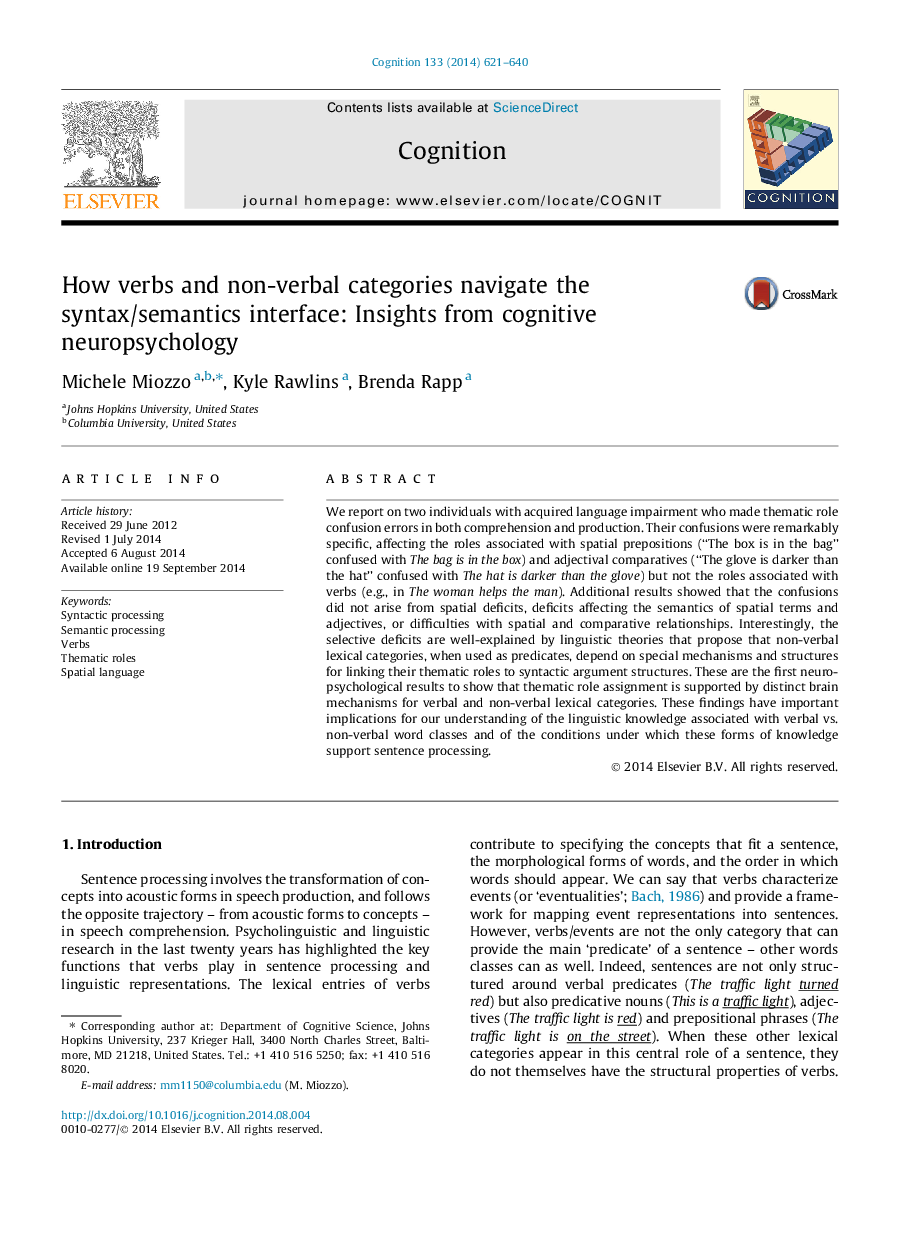| Article ID | Journal | Published Year | Pages | File Type |
|---|---|---|---|---|
| 926362 | Cognition | 2014 | 20 Pages |
We report on two individuals with acquired language impairment who made thematic role confusion errors in both comprehension and production. Their confusions were remarkably specific, affecting the roles associated with spatial prepositions (“The box is in the bag” confused with The bag is in the box) and adjectival comparatives (“The glove is darker than the hat” confused with The hat is darker than the glove) but not the roles associated with verbs (e.g., in The woman helps the man). Additional results showed that the confusions did not arise from spatial deficits, deficits affecting the semantics of spatial terms and adjectives, or difficulties with spatial and comparative relationships. Interestingly, the selective deficits are well-explained by linguistic theories that propose that non-verbal lexical categories, when used as predicates, depend on special mechanisms and structures for linking their thematic roles to syntactic argument structures. These are the first neuropsychological results to show that thematic role assignment is supported by distinct brain mechanisms for verbal and non-verbal lexical categories. These findings have important implications for our understanding of the linguistic knowledge associated with verbal vs. non-verbal word classes and of the conditions under which these forms of knowledge support sentence processing.
